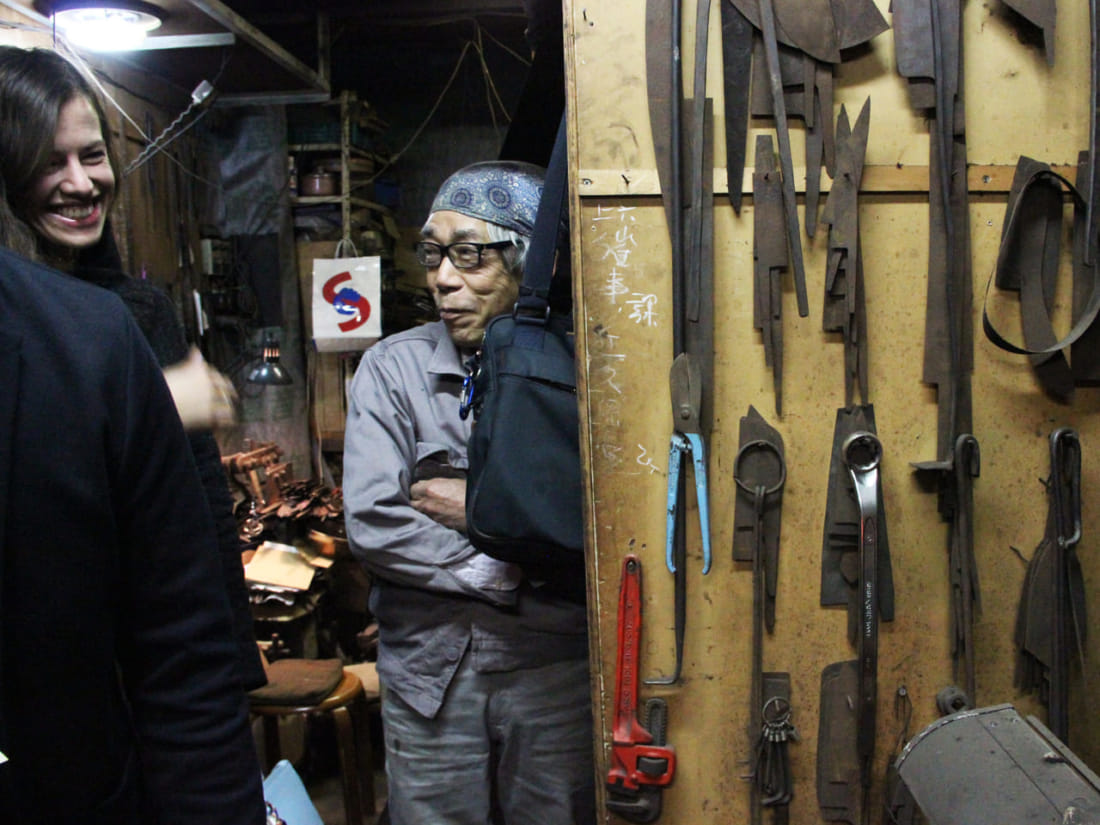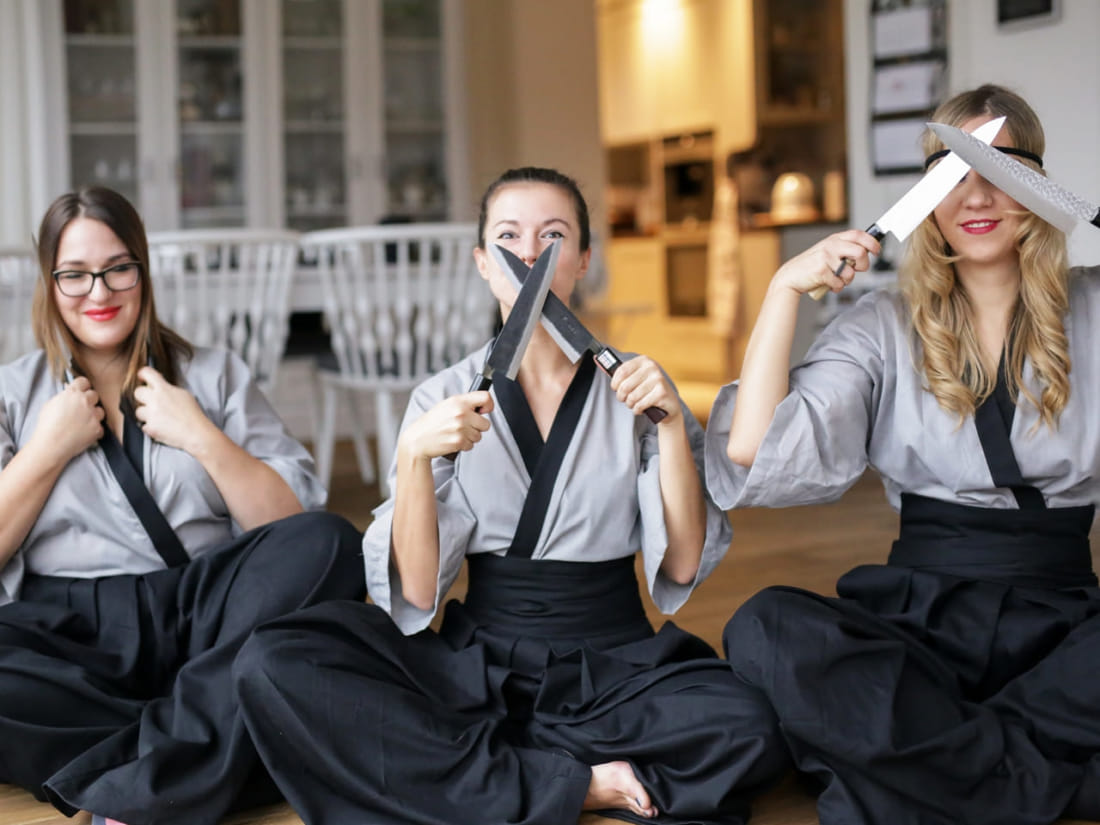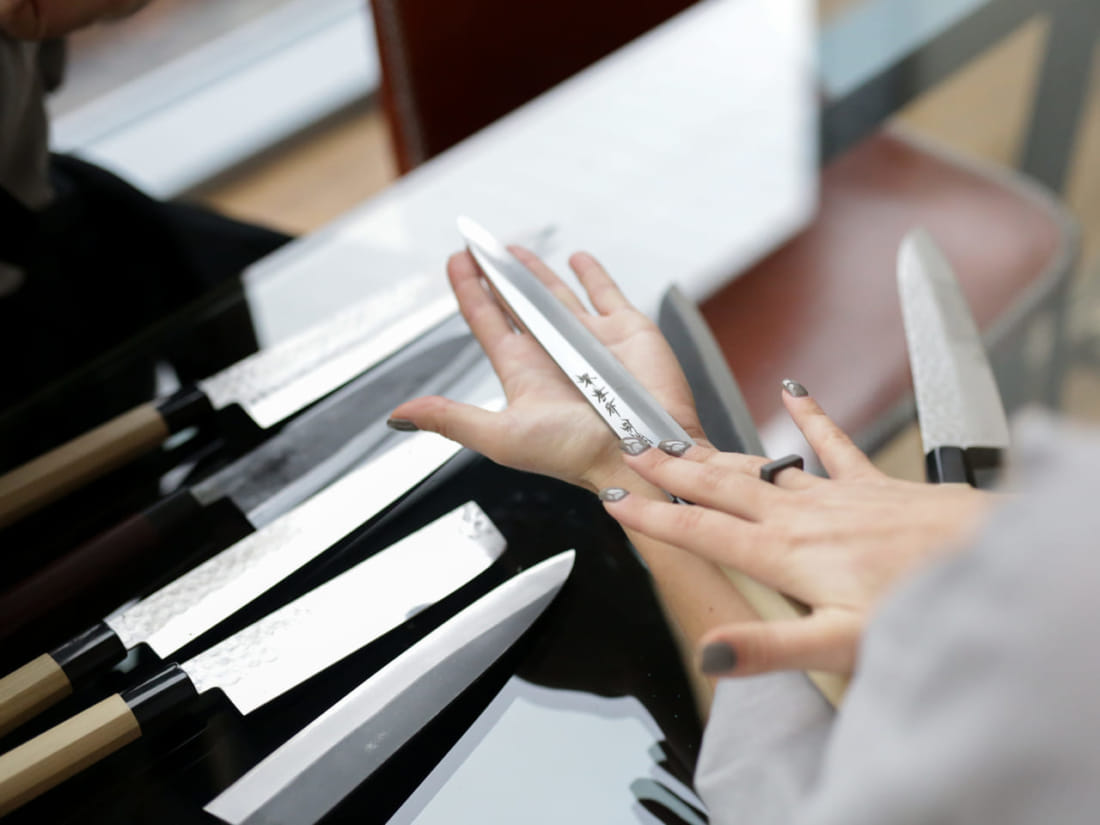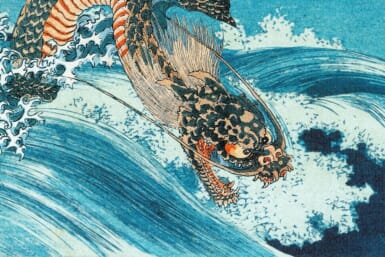A few years ago, while living in London and looking for a gift for her partner, Kamila Hankiewicz was shocked by the high prices and limited selection of Japanese Damascus steel knives available. After searching through multiple kanji-filled websites and having no luck, she decided to go direct to the source and contacted a Japanese blacksmith who made her a custom-engraved knife.
The experience planted a seed for a new business idea, and in 2015 she and her high school friend Anna Szymczak founded Japana. They were later joined by designer Anna Czarnowska, whom Kamila had met in a chance encounter on an airplane years earlier, creating their trio team. All three women are from Poland and share a mutual love of Japanese culture and a deep respect for the fighting samurai spirit.
The Allure of Japanese Knives
Japanese knives are renowned as some of the finest culinary tools and considered an essential item by professional chefs and home cooks alike. Offering a diverse array of highly specialized and multipurpose knives, with easier maintenance and superior handcrafted production, their highly regarded reputation comes as no surprise. Aside from the generations of fine craftsmanship that goes into their knives and the wide variety of styles and production techniques, Hankiewicz believes the merits go beyond practicalities. “The special thing about these knives are the values that they represent: pride, bravery, strength, history and tradition. We do not sell just knives, we sell art, pieces of beauty with extraordinary history,” she says.
By focusing on this ethos and making a connection with the craftsmen themselves, the company is indeed not only selling knives but also serving up an authentic slice of Japanese culture. The company’s logo incorporates a Japanese kamon (crest) emblem from the Edo period, representing three fans used by onna-bugeisha (noble female warriors relatively unknown outside of Asia and anime). “For years, onna-bugeisha fought alongside male samurai, maintained the same standards, and had the same responsibilities. They were considered extremely strong and independent women,” Hankiewicz explains. “We created the Japana brand – or as we call it, ‘Female Japan’ – to bring Japanese aesthetics, style and values to European homes.”
The Challenges of Establishing a Brand in Japan
Establishing a brand and trading in a foreign country can be a challenge, even more so in a male-dominated industry with a stereotypically conservative and patriarchal business system. “In the beginning, no one took us seriously,” says Szymczak. Undeterred by the difficult road ahead, they found better ways to communicate with the Japanese suppliers, learning a more gentle and patient approach – a contrast to the straightforward European etiquette. “We Polish women know how to earn people’s trust, so on our last trip to Japan to meet with contractors we brought a lot of sweets and our Polish vodka,” she says, laughing.

Meeting with the craftsmen
Recently, Japana has expanded its lines to include magnetic knife racks, ceramic vases and other home products, all made from natural elements – steel, wood and stone. They are also introducing their customers to kintsugi, the art of fixing broken pottery with gold urushi lacquer, and have big plans for future collections including Japanese-inspired soft furnishings and apparel.
Czarnowska has some final words about Japana’s future: “We need to be taking risks with starting new projects, following our passion and just putting ourselves out there, despite all the difficulties. It takes a lot of courage. We think that an entrepreneur is like a warrior: to never give up, fall down, and rise up again – getting stronger and stronger. That’s why we sometimes feel like onna-bugeishas!”
For more information about Japana, go to japana.uk











